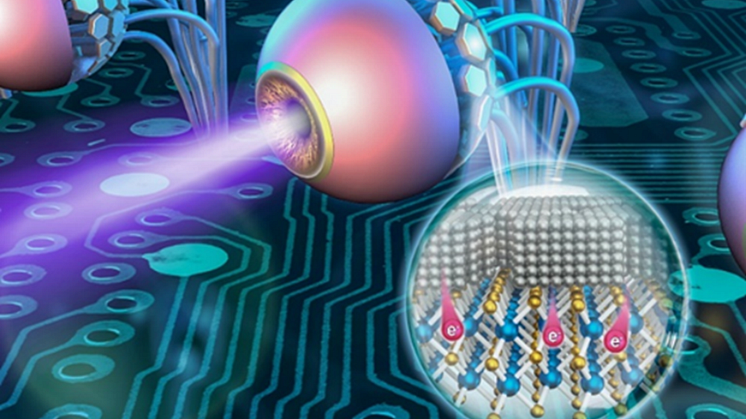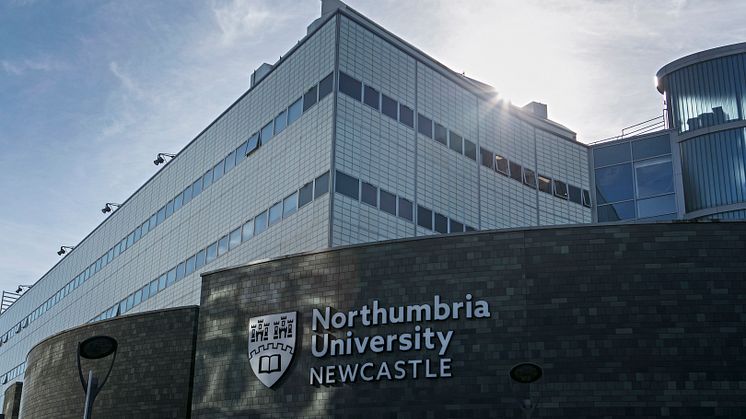
Press release -
Developing the next generation of artificial vision aids
A new technology solution which will provide low-power systems for use in bionic eyes, has been jointly developed by academics from the Harbin Institute of Technology in China and Northumbria University.
Working in partnership with a research group led by Professor PingAn Hu from the Harbin Institute, Northumbria’s Professor Richard Fu described their newly developed method for controlling the artificial synaptic devices used in bionic retinas, robots and visual protheses, as a “significant breakthrough”.
The team discovered that injecting elements of the soft metal, indium, into a two-dimensional (2D) material called molybdenum disulphide (MoS2), could improve electrical conductivity and reduce power consumption of the optical synapses used in the development of bionic eyes.
The technology was then tested within the structure of an electronic retina and found to produce the high-quality image sensing functions required.
The team’s work has been published in a paper called “Ultralow Power Optical Synapses Based on MoS2 Layers by Indium-Induced Surface Charge Doping for Biomimetic Eyes”, in the prestigious scientific journal, Advanced Materials.
Professor Fu, who is an expert in shape memory, piezoelectric thin films, nano-materials and nanodevices, explained: “The current visual systems are based on physically separated sensors, memories and processing units. These systems often have high power consumption and difficulties of performing complex image learning and processing tasks. Therefore, our newly developed method is of great significance for the next generation artificial visual systems.”
Funding for the research has been supported through a UK-China Royal Society International Exchange Grant, and the National Science Funding Council of China.
Bionic eye implants work inside the existing eye structures or in the brain. They are designed to achieve functional vision goals — as opposed to physical, cosmetic ones. Several bionic eye implants are in development, but currently very few are available, and are suitable only for blindness caused by specific eye diseases. However, as research continues, more and more people may soon benefit from high-tech bionic eyes.
Professor Fu’s innovative ideas have already contributed to advances in piezoelectric materials-based biosensing and diagnostic tools, cell patterning and manipulation. He also has an international reputation for his work around advancement of shape memory thin films and polymers used in microsurgery and drug delivery. He has developed nano-structured smart materials for gas sensing and renewable energy applications.
A Professor in Smart Materials and Microsystems, Professor Fu, works within Northumbria’s department of Mathematics, Physics and Electrical Engineering.
“This UK-China International Exchange Grant is super-productive with a lot of great outputs,” he added. “Including many joint papers published in prestigious scientific journals: one joint paper published in ACS Nano, two joint papers published in Nano Letters, one joint paper published in Chemistry of Materials, two joint papers published in Materials Horizons, one joint paper in Advanced Electronic Materials and three joint papers published in ACS Applied Materials and Interfaces.”
Find out more about Northumbria’s department of Mathematics, Physics and Electrical Engineering
Topics
Categories
Northumbria is a research-rich, business-focused, professional university with a global reputation for academic excellence. Find out more about us at www.northumbria.ac.uk --- Please contact our Media and Communications team at media.communications@northumbria.ac.uk with any media enquiries or interview requests ---











